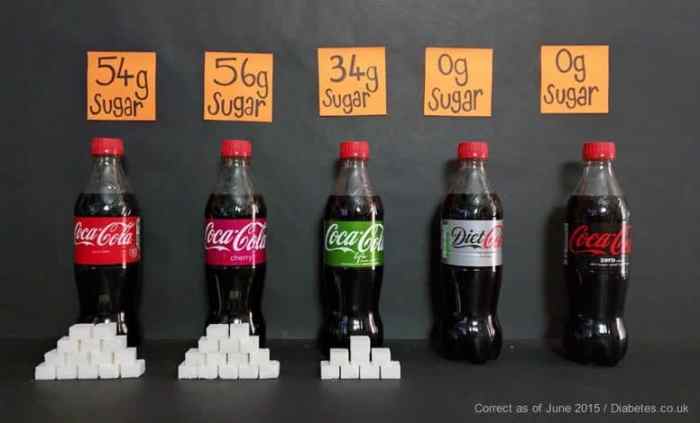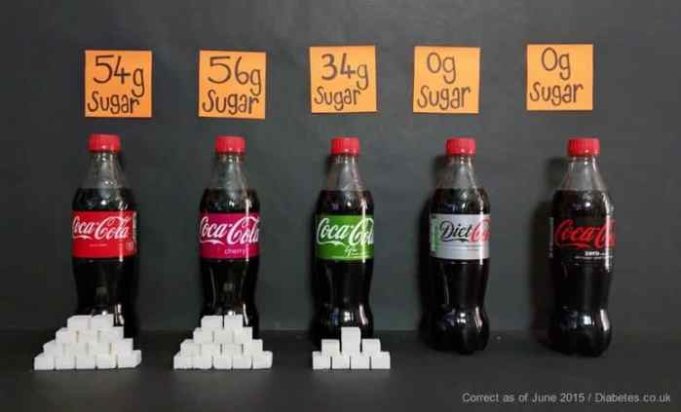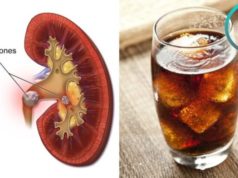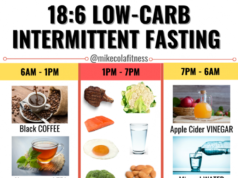Difference between diet coke and coke – Diet Coke vs. Coke: What’s the Difference? These two iconic beverages have become staples in our culture, but they differ significantly in their ingredients, taste, and impact on our bodies. While Coke offers the classic sugary sweetness, Diet Coke aims for a sugar-free alternative, relying on artificial sweeteners to achieve its flavor profile. This article delves into the key differences between these two drinks, exploring their nutritional content, taste, caffeine levels, production processes, and even their cultural significance.
From the ingredients used to the marketing strategies employed, Diet Coke and Coke stand apart in various ways. Understanding these differences can help you make informed choices about the beverages you consume and their potential effects on your health and the environment.
Ingredients and Nutritional Content
While both Coke and Diet Coke are carbonated beverages, their ingredients and nutritional content differ significantly. Diet Coke is marketed as a sugar-free alternative to regular Coke, but this difference comes with a trade-off in terms of ingredients and potential health implications.
Ingredients
- Coke: Carbonated water, sugar, caramel color, phosphoric acid, natural flavors, caffeine.
- Diet Coke: Carbonated water, caramel color, phosphoric acid, aspartame, natural flavors, caffeine.
The key difference between the two drinks lies in their sweeteners. Coke uses sugar as its primary sweetener, while Diet Coke relies on aspartame, an artificial sweetener.
Nutritional Value
| Ingredient | Coke (12 fl oz) | Diet Coke (12 fl oz) |
|---|---|---|
| Calories | 140 | 0 |
| Sugar | 39 g | 0 g |
| Artificial Sweeteners | 0 g | 42 mg (aspartame) |
| Caffeine | 34 mg | 34 mg |
As the table illustrates, Diet Coke is significantly lower in calories and sugar than Coke. However, it contains aspartame, an artificial sweetener that has been the subject of controversy regarding its potential health effects.
Potential Health Implications
- Regular Coke: High sugar content in Coke can contribute to weight gain, type 2 diabetes, heart disease, and other health problems. Regular consumption of sugary drinks is linked to increased risk of these conditions.
- Diet Coke: While Diet Coke offers a calorie-free alternative, the long-term effects of aspartame consumption are still being studied. Some research suggests potential links between aspartame and health issues like headaches, mood changes, and even cancer, though these associations are not definitively proven.
It’s important to note that the potential health implications of both Coke and Diet Coke are still being investigated, and more research is needed to understand the long-term effects of their consumption.
Taste and Flavor
The taste and flavor profiles of Coca-Cola and Diet Coke are distinct, primarily due to the presence or absence of sugar. While both beverages share a familiar Coca-Cola essence, their sweetness levels, carbonation, and aftertaste differ significantly.
The Impact of Sugar
The absence of sugar in Diet Coke dramatically alters its taste compared to Coca-Cola. While Coca-Cola relies on sugar for its sweetness, Diet Coke employs artificial sweeteners, resulting in a different flavor profile. The sweetness of Diet Coke is often described as less robust and less natural than the sweetness of Coca-Cola. The artificial sweeteners used in Diet Coke, such as aspartame and sucralose, can also contribute to a slightly metallic or bitter aftertaste, which is absent in Coca-Cola.
Artificial Sweeteners and Their Influence
The use of artificial sweeteners in Diet Coke contributes to its unique taste. These sweeteners, while providing sweetness, lack the complex flavor profile of sugar. They can also create a lingering aftertaste that some find unpleasant. Aspartame, a common artificial sweetener in Diet Coke, is known for its slightly bitter aftertaste, while sucralose can leave a slightly sweet and artificial aftertaste. These aftertastes, though subtle, can influence the overall taste perception of Diet Coke.
Caffeine Content
Both Diet Coke and regular Coke contain caffeine, a stimulant that can enhance alertness and energy levels. However, the amount of caffeine in each beverage differs.
Caffeine Levels in Diet Coke and Coke
The caffeine content in Diet Coke and Coke varies depending on the size of the serving. Here’s a breakdown:
- Diet Coke (12 fl oz): 46 mg of caffeine
- Coke (12 fl oz): 34 mg of caffeine
As you can see, Diet Coke contains slightly more caffeine than regular Coke. This is because Diet Coke uses a different type of caffeine that is more soluble in water.
Effects of Caffeine on the Body
Caffeine is a stimulant that can affect the body in various ways. Some of the most common effects include:
- Increased alertness and focus: Caffeine blocks adenosine, a neurotransmitter that promotes sleepiness. This can make you feel more awake and focused.
- Enhanced physical performance: Caffeine can improve athletic performance by increasing endurance and reducing perceived exertion.
- Mood elevation: Caffeine can stimulate the release of dopamine, a neurotransmitter associated with pleasure and motivation. This can lead to a feeling of euphoria or happiness.
- Diuretic effect: Caffeine can increase urine production, which can lead to dehydration if not enough water is consumed.
Recommended Daily Intake and Potential Health Risks
The recommended daily intake of caffeine varies depending on individual factors, such as age, health, and tolerance.
The Food and Drug Administration (FDA) recommends a maximum daily intake of 400 mg of caffeine for healthy adults.
Excessive caffeine consumption can lead to various health problems, including:
- Anxiety and restlessness: High doses of caffeine can cause feelings of anxiety, nervousness, and jitteriness.
- Insomnia: Caffeine can interfere with sleep, especially if consumed late in the day.
- Headaches: Caffeine withdrawal can trigger headaches, especially in people who regularly consume high amounts of caffeine.
- Digestive problems: Caffeine can cause heartburn, indigestion, and diarrhea in some people.
- Increased heart rate and blood pressure: Caffeine can stimulate the cardiovascular system, leading to a faster heartbeat and higher blood pressure.
Production Process: Difference Between Diet Coke And Coke
The production processes for both Coke and Diet Coke share several similarities, but the absence of sugar in Diet Coke significantly impacts specific stages. Both beverages start with carbonated water, which is created by dissolving carbon dioxide gas into water under pressure. This process is identical for both drinks.
Carbonated Water
Carbonated water forms the base of both Coke and Diet Coke. This process involves dissolving carbon dioxide gas into water under pressure. This process is identical for both beverages.
- The water is treated to remove impurities and minerals that can affect the taste and clarity of the final product.
- Carbon dioxide gas is then dissolved into the water under high pressure, creating the characteristic fizz of both beverages.
Syrup Production
The syrup is the heart of the flavor profile for both drinks.
- Coke’s syrup uses a blend of caramel color, phosphoric acid, caffeine, natural flavors, and sugar. The sugar content is a key differentiator, contributing to Coke’s sweetness and calorie content.
- Diet Coke’s syrup replaces sugar with artificial sweeteners, such as aspartame and acesulfame potassium, to achieve a similar taste without the calories. The absence of sugar in Diet Coke’s syrup necessitates adjustments to the recipe, as the sugar’s sweetness and its role in balancing other flavors need to be replicated.
Blending
The final step involves blending the carbonated water with the syrup.
- The ratio of syrup to water is carefully controlled to achieve the desired taste and carbonation level. This ratio may vary slightly between Coke and Diet Coke, reflecting the different sugar content and the need to balance flavors.
- The blended beverage is then filtered to remove any impurities and bottled or canned.
Marketing and Target Audience
Coca-Cola and Diet Coke, despite being variations of the same product, employ distinct marketing strategies to reach their target audiences. Their marketing efforts cater to the specific needs and preferences of their respective consumers.
Target Audience, Difference between diet coke and coke
Coca-Cola and Diet Coke have targeted different demographics, leveraging distinct marketing approaches to appeal to their unique needs and preferences.
- Coca-Cola: Traditionally targets a broader audience, including young adults, families, and individuals seeking a classic, refreshing beverage. Its marketing often emphasizes social connection, enjoyment, and shared experiences.
- Diet Coke: Primarily targets health-conscious individuals, often women, who seek a lower-calorie alternative to regular Coke. Its marketing often emphasizes weight management, fitness, and a sense of control.
Branding and Advertising Campaigns
The branding and advertising campaigns for Coca-Cola and Diet Coke reflect their distinct target audiences.
- Coca-Cola: Utilizes iconic imagery, vibrant colors, and catchy jingles to evoke feelings of happiness, nostalgia, and shared experiences. Its campaigns often feature celebrities and real-life stories that resonate with a broad audience.
- Diet Coke: Employs a more sophisticated and sleek aesthetic, often featuring slim, stylish figures and modern designs. Its advertising campaigns frequently highlight themes of empowerment, confidence, and individual success, appealing to a more discerning and health-conscious audience.
Perception and Image
The perception and image of Coca-Cola and Diet Coke play a significant role in consumer choices.
- Coca-Cola: Perceived as a classic, nostalgic, and universally enjoyed beverage, associated with happiness, celebration, and social gatherings. Its image is often tied to family, friends, and shared experiences.
- Diet Coke: Perceived as a modern, health-conscious, and sophisticated beverage, associated with empowerment, fitness, and individual success. Its image often emphasizes control, self-discipline, and a commitment to a healthy lifestyle.
Environmental Impact
Both Coke and Diet Coke have a significant environmental impact, stemming from their production, packaging, and distribution. Understanding the environmental implications of these beverages is crucial for making informed choices about our consumption habits.
Packaging Materials
The packaging of Coke and Diet Coke contributes substantially to their environmental footprint. Both beverages are typically sold in aluminum cans and plastic bottles, both of which have environmental drawbacks.
- Aluminum cans, while recyclable, require energy to produce and transport. The extraction of aluminum ore is a resource-intensive process that can lead to deforestation and habitat loss.
- Plastic bottles are often made from petroleum-based materials, contributing to greenhouse gas emissions and plastic pollution. While some plastic bottles are recyclable, not all are recycled effectively, leading to environmental damage.
Water Consumption
The production of Coke and Diet Coke requires significant amounts of water. While the exact water footprint varies depending on factors like location and production methods, it is estimated that approximately 3 liters of water are needed to produce one liter of Coke.
- This high water usage can strain water resources, especially in regions facing water scarcity.
- Furthermore, the water used in production can be contaminated with pollutants, potentially impacting surrounding ecosystems.
Carbon Emissions
The production, transportation, and consumption of Coke and Diet Coke generate greenhouse gas emissions.
- The manufacturing process, including the extraction of raw materials, processing, and packaging, releases significant amounts of carbon dioxide.
- The transportation of these beverages from factories to distribution centers and retail outlets adds to their carbon footprint.
- The refrigeration of Coke and Diet Coke in stores and homes also contributes to greenhouse gas emissions.
Cultural Significance

Both Coca-Cola and Diet Coke have deeply ingrained themselves into the cultural fabric of society, becoming more than just beverages. Their historical context and societal impact have shaped their perception and role in our lives.
Portrayal in Popular Culture and Media
Both Coca-Cola and Diet Coke have been featured prominently in popular culture and media, often symbolizing American values and aspirations. Coca-Cola’s iconic red and white logo, along with its catchy jingle, have become instantly recognizable worldwide.
“I’d like to buy the world a Coke”
This iconic slogan from the 1971 Coca-Cola commercial reflects the brand’s aspirational message of unity and togetherness. Diet Coke, while not as widely featured as its full-sugar counterpart, has also made appearances in popular culture, often targeting a more health-conscious and sophisticated audience.
- Diet Coke has been featured in television shows like “Sex and the City,” portraying it as a drink for fashionable and trendy characters.
- In films like “The Devil Wears Prada,” Diet Coke is associated with a fast-paced and demanding lifestyle, highlighting its appeal to ambitious professionals.
Role in Social Gatherings and Events
Both Coca-Cola and Diet Coke play significant roles in social gatherings and events, serving as a symbol of celebration, refreshment, and camaraderie.
- Coca-Cola is often associated with special occasions like birthdays, holidays, and sporting events.
- Diet Coke, with its lower calorie count, has become a popular choice for health-conscious individuals attending social events.
Closure
Ultimately, the choice between Diet Coke and Coke comes down to personal preference and individual goals. Whether you’re seeking a classic sugary treat or a sugar-free option, both beverages offer a unique experience. Understanding the differences between these two iconic drinks allows you to make informed decisions about your consumption habits and enjoy them responsibly.
Common Queries
Is Diet Coke healthier than Coke?
Diet Coke contains fewer calories and sugar than Coke, making it a lower-calorie option. However, the health implications of artificial sweeteners remain a subject of ongoing research.
Does Diet Coke taste the same as Coke?
Diet Coke and Coke have distinct taste profiles. While Coke offers a classic sugary sweetness, Diet Coke relies on artificial sweeteners, which can result in a slightly different taste experience.
Which drink has more caffeine?
Both Diet Coke and Coke contain similar amounts of caffeine.
Are there any side effects of consuming artificial sweeteners?
The potential side effects of artificial sweeteners are still being studied. Some studies have linked them to digestive issues, while others have found no significant health risks.
Diet Coke and Coke differ primarily in their sugar content, with Diet Coke using artificial sweeteners instead of sugar. While the choice between the two depends on individual preferences and dietary goals, it’s important to remember that soda, regardless of sugar content, isn’t typically considered a key part of a healthy diet.
For those seeking a more balanced approach, the best way to diet involves focusing on whole, unprocessed foods, portion control, and regular exercise. Ultimately, choosing between Diet Coke and Coke is a personal decision, but it’s crucial to consider the overall impact on your health and well-being.
The main difference between Diet Coke and regular Coke is the sugar content. Diet Coke uses artificial sweeteners to create a similar taste without the calories. This brings up the question of what constitutes “good” diet food, which can be a complex topic.
What is good diet food depends on your individual goals and dietary needs. While Diet Coke might be a lower-calorie option, it’s important to consider the overall impact of artificial sweeteners on your health. Ultimately, the best choice for you depends on your personal preferences and dietary needs.
The main difference between Diet Coke and regular Coke is the absence of sugar in the diet version. While both may seem like harmless indulgences, if you’re looking to shed those extra pounds, especially around the midsection, you’ll want to consider your overall diet.
Understanding what is the best diet to lose belly fat can help you make informed choices, and in the case of Diet Coke versus regular Coke, the diet version may be a better choice if you’re watching your calorie intake.
























